Congregational Singing
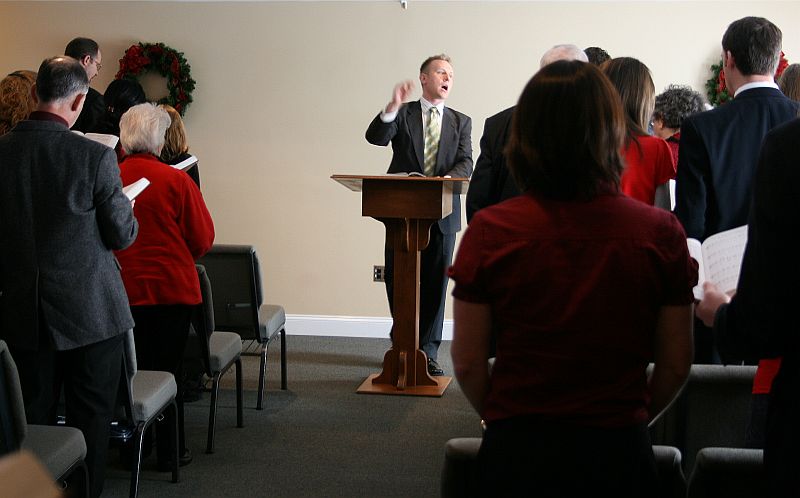 Last week, in his article about Hymnology, Richard Dent sited 7 rules for congregational singing. Taking a deeper look into these principles might inspire us to consider how we sing on Sunday morning, and how (do) we prepare ourselves to sing.
Last week, in his article about Hymnology, Richard Dent sited 7 rules for congregational singing. Taking a deeper look into these principles might inspire us to consider how we sing on Sunday morning, and how (do) we prepare ourselves to sing.
We mentioned the book by John & Charles Wesley from the early 1700’s, “Selected Writings and Hymns”. This collection of ideas and prayers comes from the founder of Arminian Methodism, yet some of his ideas shared here speak to us today. We’ll consider the exact wording and explore it’s deeper meaning. Keep in mind, our focus concerning words of directions for congregational singing must come from the word of God.
John Wesley’s Rules for Singing
From John Wesley’s Select Hymns, 1761
1) Learn these tunes before you learn any others; afterward learn as many as you please. The encouragement here is for the reader to learn Wesley’s songs as printed in his book. We would agree with the premise to ‘Learn these tunes…’ provided the tunes are scriptural in content. If we find a psalm, hymn or spiritual song that doesn’t resonate with the truth of God’s word, exercise caution before adding it to your repertoire. Learn as many as you please is good advice. But the basis for this charge is to sing songs of praise to God. If we would do that one thing alone (sing to God) our nation would be turning more toward Him.
2) Sing them exactly as they are printed here, without altering or mending them at all; and if you have learned to sing them otherwise, unlearn it as soon as you can. Unfortunately I don’t espouse the language in this ‘rule’ for singing. Though spoken as a true musician, the lay singer will often adjust the melody line or add supporting harmony to a song. God’s instruction to us when we sing is to sing with our hearts, not our vocal cords. Often times we get caught up in the sound of it rather than focus on the heart of singing.
3) Sing all. See that you join with the congregation as frequently as you can. Let not a slight degree of weakness or weariness hinder you. If it is a cross to you, take it up, and you will find it a blessing. This is sound advice! ‘Sing all’ is a call for everyone to sing. Not just those who can or have the ‘best voices’, but all should be singing. Our culture seems to focus on the ‘idols’ and glamorize the talent, but when we read Colossians 3:16, the instruction is to be ‘…teaching and admonishing one another…singing with thankfulness in your hearts to God.’ Paul doesn’t say, ‘if you want to,’ the command is for us to sing; and so we should, sing all!
4) Sing lustily and with a good courage. Beware of singing as if you were half dead, or half asleep; but lift up your voice with strength. Be no more afraid of your voice now, nor more ashamed of its being heard, than when you sung the songs of Satan. Two thoughts here; be of good courage and sing lustily (powerful or strong) are a great admonition. While some refuse to sing, others sing with apathy in their voices. And yet how often do we sing out the songs of the world, but mumble or refuse to sing songs of praise? Considering this was written almost 250 years ago, I find it interesting Wesley refers to worldly songs as ‘songs of Satan.’ Can we find praise to God in secular tunes (western, rock, rap, etc)? Perhaps, since many of those musical numbers carry us away from God, then Wesley was right in saying they are songs of Satan. And yet those are the songs that are sung to establish the ‘best singers’ in our society…do we need to rethink our singing?
Two thoughts here; be of good courage and sing lustily (powerful or strong) are a great admonition. While some refuse to sing, others sing with apathy in their voices. And yet how often do we sing out the songs of the world, but mumble or refuse to sing songs of praise? Considering this was written almost 250 years ago, I find it interesting Wesley refers to worldly songs as ‘songs of Satan.’ Can we find praise to God in secular tunes (western, rock, rap, etc)? Perhaps, since many of those musical numbers carry us away from God, then Wesley was right in saying they are songs of Satan. And yet those are the songs that are sung to establish the ‘best singers’ in our society…do we need to rethink our singing?
5) Sing modestly. Do not bawl, so as to be heard above or distinct from the rest of the congregation, that you many not destroy harmony, but strive to unite your voices together, so as to make one clear melodious sound. Almost seems like a counter to the previous rule to ‘sing lustily’, but consider the reason for singing with modesty. Do we come together to out sing each other? Are you singing tenor so others can hear you for your praise? Sopranos might have the hardest time with this ‘rule’ in that they have the lead voice. We must be aware that our songs are not for us, but for our God. Remember that we are offering ‘…a sacrifice of praise to God, that is, the fruit of lips that give thanks to His name.’ Will we offer that sacrifice with strength and power or with selfish intentions?
6) Sing in time. Whatever time is sung be sure to keep with it. Do not run before nor stay behind it; but attend close to the leading voices, and move therewith as exactly as you can; and take care not to sing too slow. This drawling way steals on all who are lazy; and it is high time to drive it out from us, and sing all our tunes just as quick as we did at first. Again, I’m not convinced this is of the utmost importance. What IS important is the encouragement to sing together. In addition, there is a clear understanding, as Paul stated in I Cor. 14:40 that we are to do, ‘all things…properly and in an orderly manner.’ This is case in point as to why we have song leaders in our worship services. Someone to lead our singing so the congregation can sing together without some running ahead or sing ‘whatever song they want.’ The 14th chapter of I Corinthians helps us understand this idea more clearly.
7) Above all sing spiritually. Have an eye to God in every word you sing. Aim at pleasing Him more than yourself or any other creature. In order to do this attend strictly to the sense of what you sing, and see that your heart is not carried away with sound, but offered to God continually; so shall your singing be such as the Lord will approve here,  and reward you when He cometh in the clouds of heaven. I couldn’t say it any clearer. As we sing on Sunday mornings, Sunday evenings and Wednesday nights (or anytime for that matter) we’re praising God. The question is, where do you focus? We are a blessed people to have the hope of heaven. Let’s sing in our congregations to the glory of God and not to satisfy our opinions.
and reward you when He cometh in the clouds of heaven. I couldn’t say it any clearer. As we sing on Sunday mornings, Sunday evenings and Wednesday nights (or anytime for that matter) we’re praising God. The question is, where do you focus? We are a blessed people to have the hope of heaven. Let’s sing in our congregations to the glory of God and not to satisfy our opinions.
And just in case you were wondering; here’s one more quote from John Wesley, “I have no objection to instruments of music in our worship, provided they are neither seen nor heard.” Updated from What Did Early Christians Believe About Using Instrumental Music in Worship. http://www.bible.ca/H-music.htm
That’s All I Want…Jan 20th
A friend of mine shared a GREAT idea about posting the order of worship for members of the congregation and prospective worship leaders. This simple use of the world wide web will allow those interested to get a glimpse of what’s coming up for Sunday morning. Nice idea, and one I think will benefit those who what to learn about the songs we’ll be singing on Sunday. This post will reflect this past Sunday morning (January 20th). Be looking for the next few weeks as we’ll be posting the order of worship by Friday or Saturday before Sunday…
Sunday morning, January 20, 2013
Robert Oglesby has been the pulpit preacher at Waterview church of Christ since February, 1963. Yes, in a few short days he and his family will be celebrating 50 years as the preacher for this solid congregation in the Kingdom of God. Our sermon topic on Sunday was titled, “That’s All I Want”. Our scripture basis was the 23rd Psalm, so our hymn selection was almost a given. The following is an account of our order of worship and all song numbers are from the hymnal, Songs of Faith & Praise.
“We Will Glorify” – 578
A great song that praises our God and King; beautiful way to set our minds on worship.
“The Lord’s My Shepherd” – 134
The music for this popular arrangement dates back to 1854. All six verse of the 23rd Psalm can be sung in this song. This is a perfect example of Ephesians 5:19 “…speaking to one another in PSALMS and hymns and spiritual songs”
“Hear Me When I Call” – no book
This has become perhaps my favorite of all Tillit S. Teddlie songs. Certainly one that asks for our God to hear our call and ‘attend unto my prayer.’ What better way to describe my weakness than to request that our Lord, ‘…hold my trembling hand, lest helpless I should fall.”
“We Have an Anchor” – 467
The question is asked by those who sing, “Will your anchor hold in the storms of life?” In other words, how are you doing in your relationship with God? We echo in response…”We HAVE AN ANCHOR!”
“I Need Thee Every Hour” – 837
This song of prayer serves as our invitation on Sunday morning. Would that we all come to understand and truly say, “I need Thee, O I need Thee…”
“I’d Rather Have Jesus” – 581
Singing the first verse this song you are stating that you prefer (would rather have) Jesus over the riches of this world. More than houses or lands…do you really? Would your wallet agree? Take a look at your bank statement if you want to see if you really believe this song.
“I Love the Lord” – 359
Penned in my life time (1970), this song by Tommy Wheeler makes the statement that proclaims our love for God. We sing “I love the Lord”, but why? You know and you sing, “…on Calvary His dear life He freely gave…that I might live some day with Him on high.”
“The Lord My Shepherd Is” -126
Like song #134, the music for this arrangement was in the mid 1800’s, but when Isaac Watt’s penned this psalm, he followed the poetry in the message from the shepherd/king David. An affirmation of who my Shepherd is…the Lord. And knowing that…what else could I want?
At Waterview church of Christ we use a screen to project all our songs. This allows faces to be up (out of the book) and voices to be projected forward. All songs on the screen are accompanied with the sheet music for those who will sing 4-part harmony. In a world that seems to be getting faster and faster, and schedules that we tend to pack to over flow, let me admonish you to be careful and not push Jesus out of your life. You and I both know that with Him in our life and when Christ is first, we can honestly say…That’s all I need!
Area-wide Singing…
Recently a friend of mine shared with me this newspaper article from McNairy County Independent Appeal newspaper in west Tennessee. The article announces a Sunday morning singing in Finger, Tennessee, just south of Henderson, Tennessee. The date of this article is August 15, 1913. Step back in time and read how a small, rural community viewed opportunities to fellowship and worship together…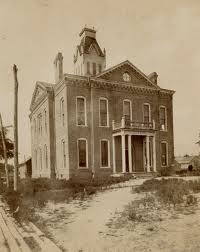
“Notice: We will sing at Lain’s School House all day the third Sunday in August, 1913. Bring all your song books, and especially your old ones, as we will sing more old songs than new ones. These new songs are cheap stuff anyhow at meetings like these.
An organ will be there, and a trained organist playing it. (this was the Christian church)
We rather see boxes than bottles, baskets than bruises, peace than pistols, worship than war, joy than jugs, beef than beer, knowledge than ‘knuckles’, water than wine, a song feast than a series of fistfights, a manifestation of a spiritual out pour than the laying on of hands of a civil law officer, pies than pipes, mutton than murmuring, rounding of voices in song than the result of vices, good behavior and orderly conduct than bad manners and wretched confusion, there that day. We will begin at 10 a.m.
Remember the date, please, and come prepared to sing and not to talk politics, argue scripture, swap horses, raise the tick quarantine, trade knives, tell big fish tales, opine what the price of cotton will be by Christmas, prophesy for dry weather, inquire into the whereabouts of Dick, Tom and Harry’s missing watermelons, recite Paul’s charge to Timothy, tinker with the tariff, announce the exact age of a mule by looking into said mule’s mouth, or explain what the Good Book meant when it said: ‘One woe is past: and, behold there come two woes more hereafter.’
Several good leaders promised to come.
Let’s have a first class singing.
A stock of new yarns will be disposed of at reduced prices that day.” (the author of this news paper article Hodges, operated a store)
Harvey Hodges
It’s interesting to read from years gone by the simplicity of daily life and the planning that went toward getting the community together to sing. In 1913 our country was a much different place than you and I live in today. Life styles were simple and the concern for what was important took precedence. If we were to step back in time and live a day in the early 1900’s, most of us won’t survive more than a few weeks. Without air conditioning, running water and indoor plumbing there would be little to ‘sing about’. Why did folks in this time period dedicate a full day to singing praises to God? Did they know something we don’t know?
Simply put…we have become too busy to slow down and praise God in song. We are more interested in finding the newest ipad app rather of finding peace in praising God. Our schedules are so full of self that we forget each other. Of course even those in t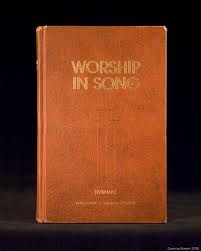 he 1913 had to be reminded to put aside selfish ideas and opinions and focus on the task at hand. It would be interesting to find out how many came to the Lain’s School House on that Sunday morning in August. Then again, if we called for folks to join us THIS coming Sunday…how many do you think would come?
he 1913 had to be reminded to put aside selfish ideas and opinions and focus on the task at hand. It would be interesting to find out how many came to the Lain’s School House on that Sunday morning in August. Then again, if we called for folks to join us THIS coming Sunday…how many do you think would come?
“Come, let us all unite to sing, God is love. Let heaven and earth their praises bring, God is love. Let every soul from sin awake, each in his heart sweet music make, and sing with us for Jesus’ sake, for God is love.” Written in 1849 (54 years before this ‘Tennessee singing’) and published in Millard & Badger’s Hymns, this song reminds us of the importance of coming together and singing. Join us on Sunday!

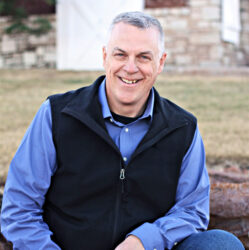
 Since February we have been following a series of three lessons that focus on the responsibilities of the song leader, otherwise known as the Song Leader’s Guide. This last of three articles will be centered around the Three “P’s” of song leading; Proactive, Practice and Plan. Though this article may over lap with the first point (being prepared), I hope you’ll find the “Three P’s of song leading” to be more focused on how you approach and lead the Lord’s church in singing. Just remember we should work as though you’re working for God… Colossians 3:23 “
Since February we have been following a series of three lessons that focus on the responsibilities of the song leader, otherwise known as the Song Leader’s Guide. This last of three articles will be centered around the Three “P’s” of song leading; Proactive, Practice and Plan. Though this article may over lap with the first point (being prepared), I hope you’ll find the “Three P’s of song leading” to be more focused on how you approach and lead the Lord’s church in singing. Just remember we should work as though you’re working for God… Colossians 3:23 “ value in singing hymns. Being ‘Proactive’ means you work on getting to know the song book better. Whether you use a book or project songs, review them and determine which songs you personally know and which ones you don’t. Go over each song (in the book or on the screen) and know what you’re doing well before Sunday morning. If you project songs, do not to rely on the church secretary to build the slide deck for you. Take the time to learn this procedure and know what’s on the screen behind you.
value in singing hymns. Being ‘Proactive’ means you work on getting to know the song book better. Whether you use a book or project songs, review them and determine which songs you personally know and which ones you don’t. Go over each song (in the book or on the screen) and know what you’re doing well before Sunday morning. If you project songs, do not to rely on the church secretary to build the slide deck for you. Take the time to learn this procedure and know what’s on the screen behind you.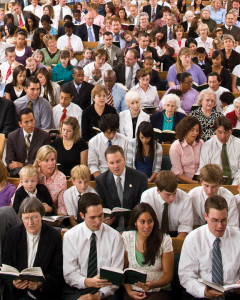 singing old familiar ones (praise). You can even shake it up on occasion by splitting the group up into four parts and learn/practice harmony. But remember to practice by yourself so you know how to better lead and teach the congregation.
singing old familiar ones (praise). You can even shake it up on occasion by splitting the group up into four parts and learn/practice harmony. But remember to practice by yourself so you know how to better lead and teach the congregation.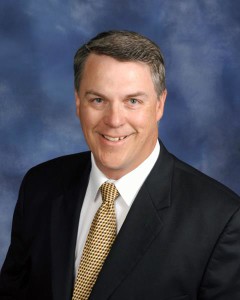 answer long before Sunday morning comes around. Just remember that we are leading the family of God in praise to Him. For some, this will be the first and only time during the week that they bow before God’s throne to worship. Will they see Him or will they be distracted by us? My prayer is that as song leaders in the Lord’s church, we will take on the mantra of I Cor. 14:15, “Church, come join us…we’re marching to Zion!”
answer long before Sunday morning comes around. Just remember that we are leading the family of God in praise to Him. For some, this will be the first and only time during the week that they bow before God’s throne to worship. Will they see Him or will they be distracted by us? My prayer is that as song leaders in the Lord’s church, we will take on the mantra of I Cor. 14:15, “Church, come join us…we’re marching to Zion!”